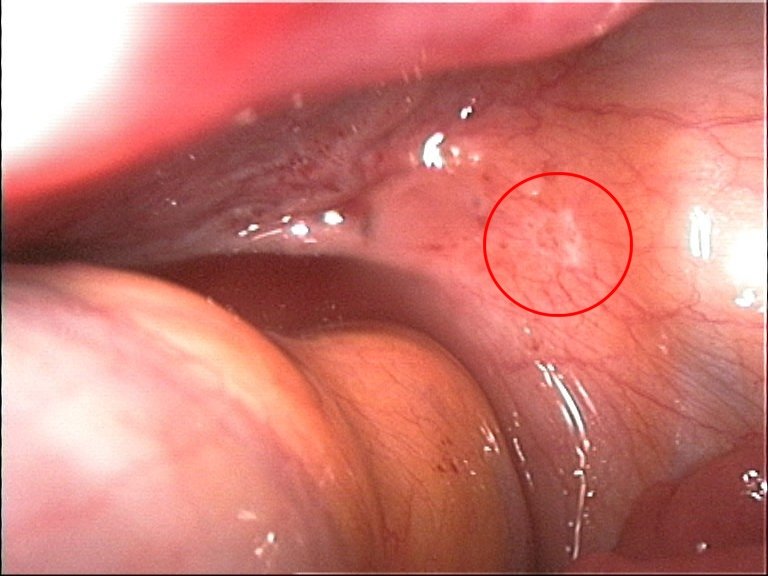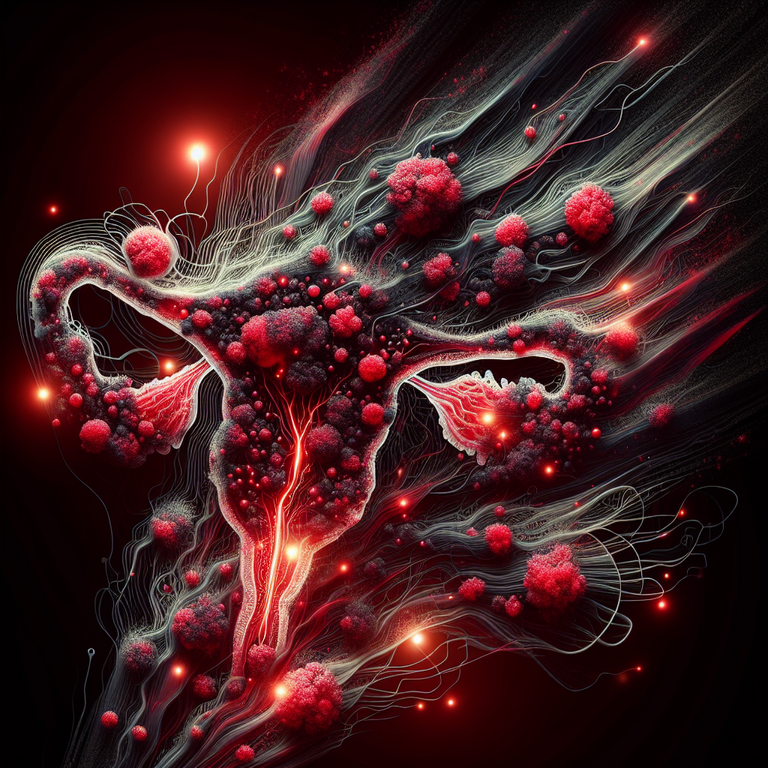Amongst the serious prayers, I received after childbirth is, may the sickness that affects women after childbirth not happen to you, while I say Amen, I used to think it was just post-partum depression, but in reality, it isn't just that, there is a lot of illness that could affect a woman even after childbirth and one of it is Endometriosis.
Endometriosis can affect a woman before or after childbirth, it happens when a tissue that is similar to the tissue that lines your uterus grows outside of the uterus. For those who experience associated symptoms, it comes with serious pain in the pelvis, especially during the menstrual cycle, blood in the urine, or stool. There could also be an experience of painful sex while using the bathroom.

Image source
Endometriosis can develop in the ovaries, fallopian tubes, outside the back of the intestines, rectum, diaphragm, and peritoneum.
Heavy bleeding in between periods, bloating or nausea, fatigue, anxiety, depression, and inability to get pregnant on time are also possible associated symptoms.
Endometriosis affects women globally from the beginning of their first periodic cycle until the age of menopause, irrespective of social status or ethnic origin. Different factors may contribute to the existence of the disease;
We have retrograde menstruation, which happens when menstrual blood containing endometrial cells flows back through the fallopian tubes into the pelvic cavity at the time blood is flowing out of the body through the cervix and vagina, during a periodic cycle.
Cellular metaplasia is another reason why the disease could happen, it is when cells change form. Cells existing outside the uterus may change into endometrial-like cells and begin to grow.

Image source
Stem cells could also produce disease when they spread through the body through lymphatic vessels and blood. Aside from these mentioned points, other factors could contribute as well to the growth or persistence of ectopic endometrial tissue.
Depending on the affected pelvis or abdomen, endometriosis can be categorized into four different types;
Endometriomas, also called chocolate cysts, are very dark, fluid-filled cysts that vary in size and can appear in different parts of the abdomen or pelvis, but they are more common in the ovaries.
Superficial peritoneal endometriosis is a thin membrane that lines the abdomen and pelvis, it also covers most organs existing in the cavities, this is the least severe form of endometriosis that exists.
Deeply infiltrating endometriosis abbreviated to DIE, is a case of endometrial tissue invading the organs either within or outside the pelvic cavity.
Abdominal wall endometriosis has the endometrial tissue growing on the abdominal wall, the cell may attach to a surgical incision, like one from a C-section.
There is a higher chance of developing endometriosis if you;
Have a close relative who is struggling with endometriosis.
When you have a short menstrual cycle.
Experiencing menopause at an early stage.
Heavy period that lasts beyond a week.
The presence of a low BMI.
The complication associated with endometriosis is difficulty for women to get pregnant. For pregnancy to happen, the ovary needs to release an egg into the fallopian tube, where sperm will be able to fertilize it, but the presence of endometriosis may block the tube, and when this happens, it becomes impossible for sperm to reach the egg and of course, pregnancy is impossible, there is even a higher possibility that endometriosis tissue would harm the egg or sperm.
Regardless of the complications stated above, so many people with moderate or mild endometriosis can still get pregnant and have a baby, but that will only be with the help of fertility treatment.
Also, depending on the extra tissue growing, endometriosis can cause problems with other organs, it could make the kidney swell, notice of blood in urine or feces, and the diaphragm or lungs may lead to chest pain or difficulty breathing.
Another big consequence that endometriosis can cause is the fact that quality of life may be affected, some people may struggle with anxiety or depression as a result.
There is currently no way to prevent endometriosis, but early awareness, early diagnosis, and early management can help to slow down or stop the natural progression of the disease, and at the same time, reduce the long-term burden that the symptoms may cause.
There are available medications that can help manage endometriosis and its associated symptoms. Pills, IUDs, implants, injections, patches, and vaginal rings are helpful methods that can be used for women who want to get pregnant.
For Further Studies.
https://www.webmd.com/women/endometriosis/endometriosis-causes-symptoms-treatment
https://my.clevelandclinic.org/health/diseases/10857-endometriosis
https://www.medicalnewstoday.com/articles/149109#symptoms

Hi, I am Tobi, a writer, speaker, relationship blogger, and lover of good music. I love making friends and learning from people. If you want to hear me speak on relationships and general life issues, you can find my YouTube channel where you can watch any episode for free, please do not forget to subscribe, friends. I sincerely appreciate every love I get from here, Kindly do well to keep them coming.
